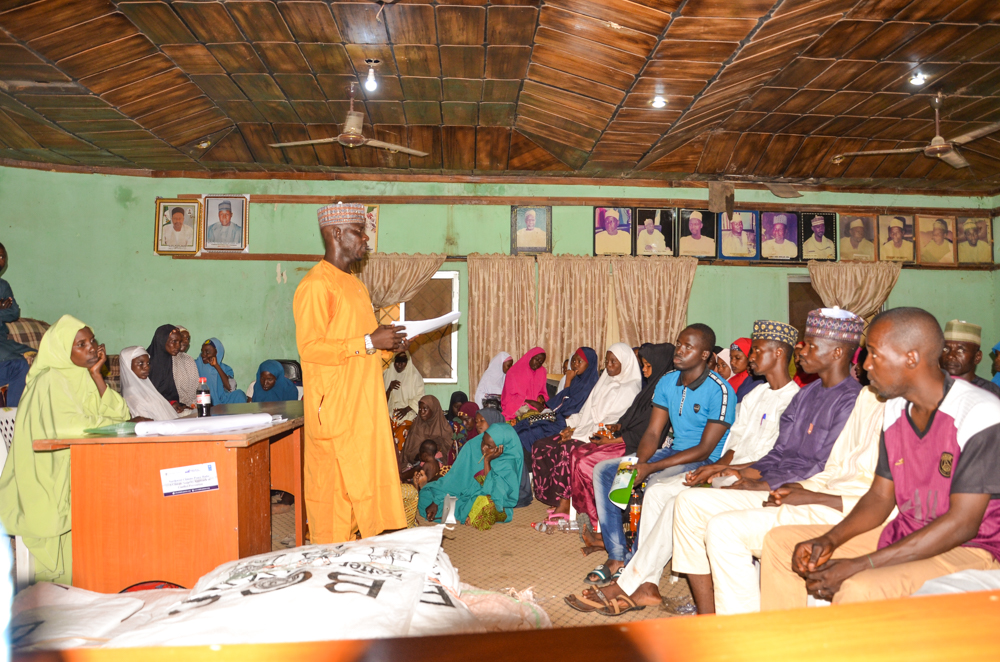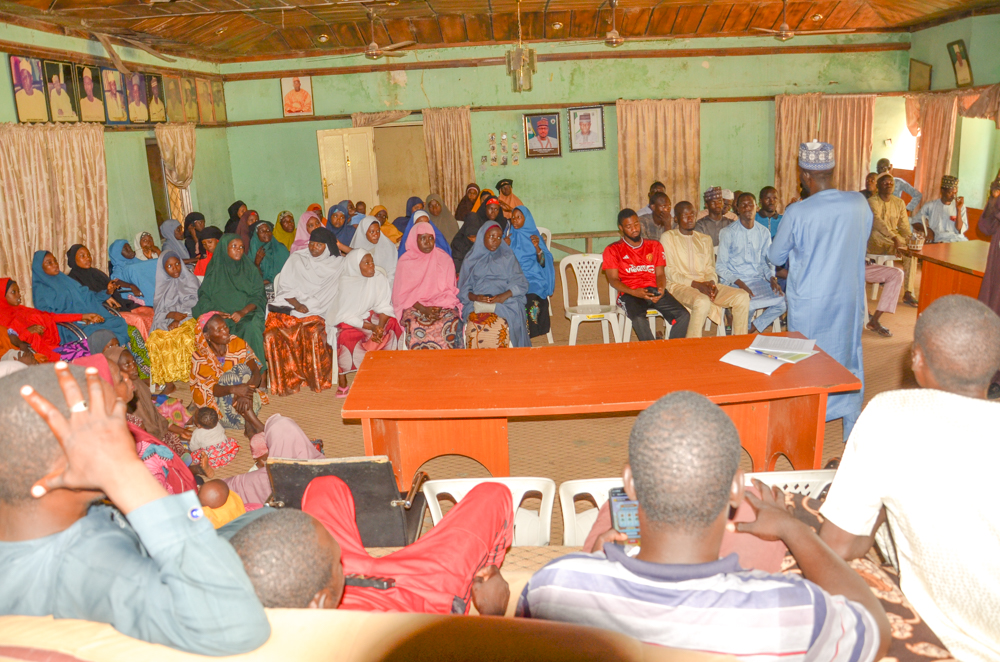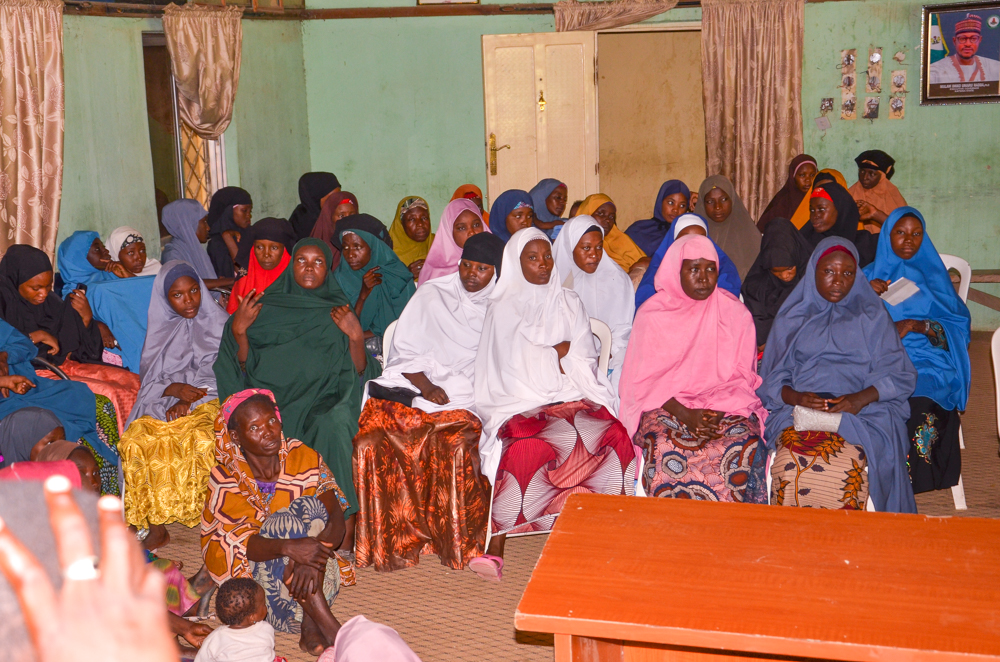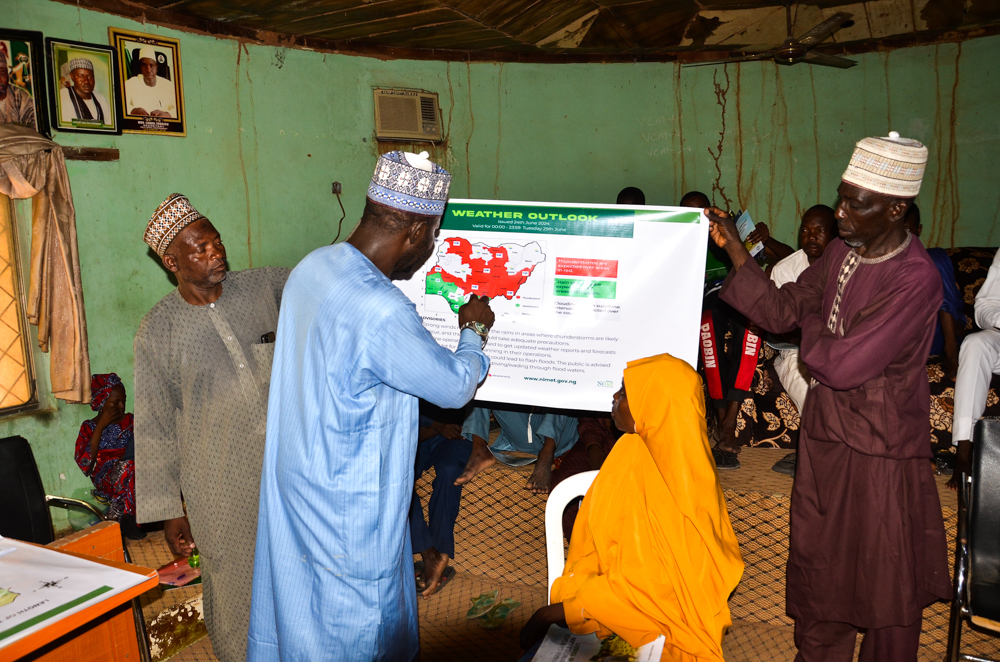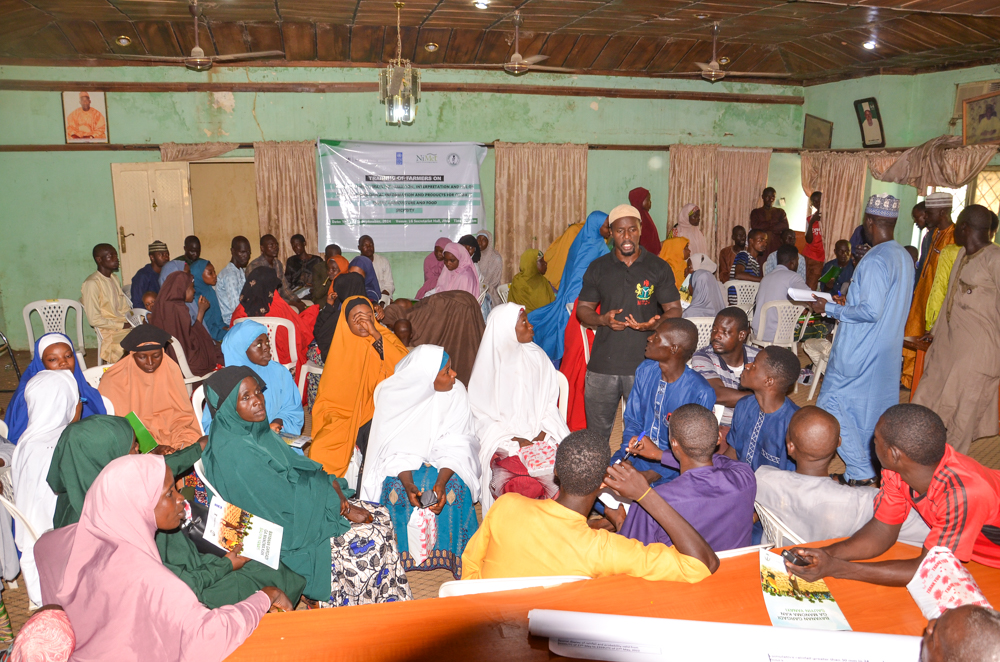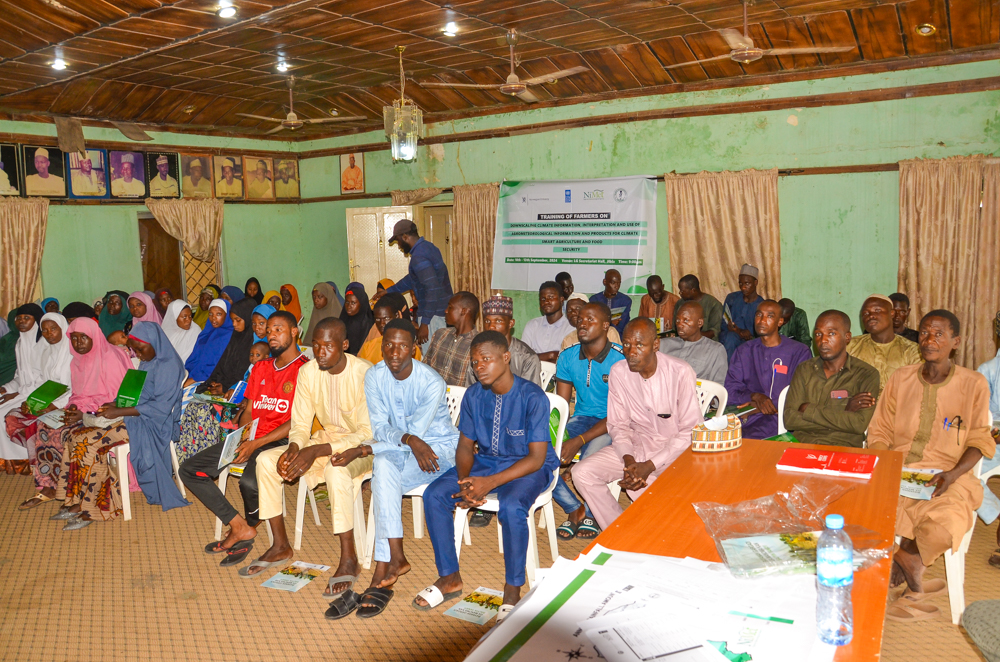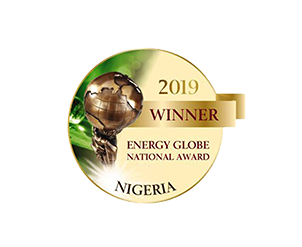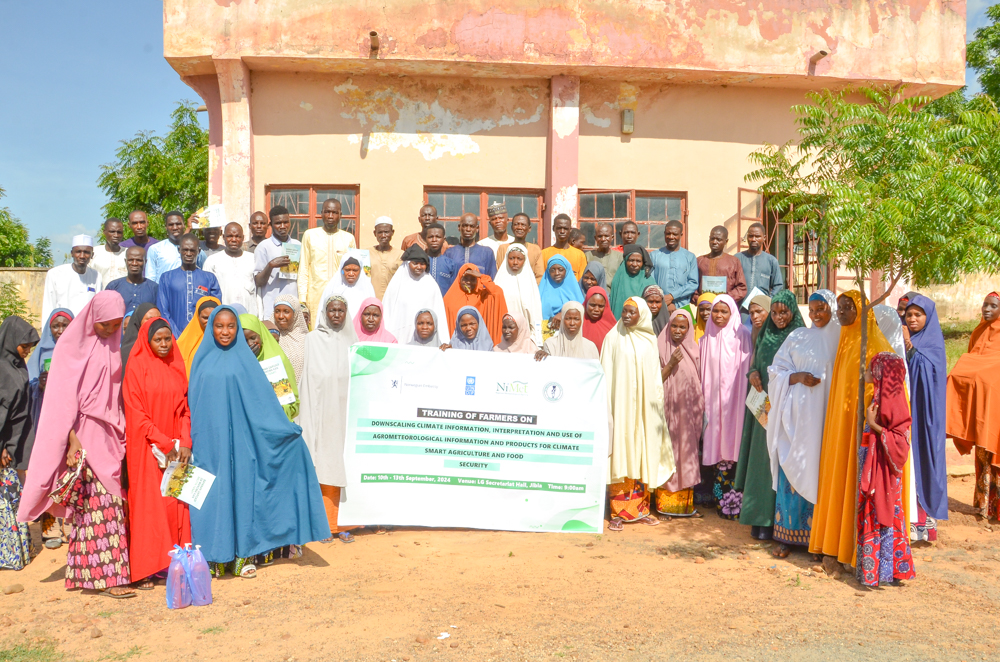
WEP Trains 500 Farmers on Down-scaling Climate Information for Improved Agricultural Practices in Jibia, Katsina State
In a major stride toward enhancing climate resilience among farmers, Women Environmental Programme (WEP), recently organized a two-day training workshop on the downscaling of climate information. The workshop, which focused on interpreting and using agrometeorological data for climate-smart agriculture, was held in Jibia Local Government Area, Katsina State. The event saw the participation of 500 farmers, underscoring the community’s eagerness to adopt sustainable agricultural practices.
The training, which is part of the ongoing “Northwest Climate-Peace Hubs: A Climate-Security Approach to Conflict Prevention” project, funded by UNDP Nigeria and the Royal Norwegian Embassy in Abuja, took place across two key locations: the Jibia Secretariat Hall and Dakar Community Secondary School. Divided into five batches, the farmers were trained on accessing and applying agrometeorological advisories provided by the Nigerian Meteorological Agency (NiMet), which aim to support informed farming decisions amidst climate variability.
WEP’s project officer, Mr. Abdulbasid Ahmed, highlighted the crucial role of climate information in agriculture, emphasizing that equipping farmers with this knowledge will enable them to better manage risks associated with unpredictable weather patterns. “Farmers are now empowered to make decisions that will improve their farming outcomes by leveraging timely climate information,” Mr. Ahmed remarked.
Farmers shared personal testimonies on how the training had transformed their understanding of climate-smart agriculture. Mr. Rilwanu, a farmer from Agangaro community, expressed his newfound appreciation for NiMet’s role in guiding farming practices. “I’ve learned how climate information helps determine the best times for land preparation, planting, fertilizer application, and harvesting. This will help me avoid the common risks of low yields,” he said.
Similarly, AMINU SAMA’ILA from Ginzo community spoke about how the training addressed the long-standing issue of pest management. “In my community, we often replant without considering the seed variety. This year, pests were a major problem. The training showed us how selecting the right seed based on rainfall patterns can prevent such issues,” he explained.
Female farmers also found the training invaluable. ZAINAB LAWAL, another participant, expressed how the workshop would change local practices. “Most of us plant after the first or second rain, but today I learned that this approach often leads to replanting. Now, I understand how NiMet’s information can help us plant at the right time, reducing losses,” she noted.
The positive feedback from the farmers highlights the profound impact of the training, which not only equips them with essential knowledge but also fosters climate-smart agriculture for better crop outcomes and reduced agricultural risks in the face of climate change.
The WEP-led initiative marks a significant step in supporting farmers to build resilience against the uncertainties of climate variability, promoting sustainable agriculture in Katsina State and beyond.
